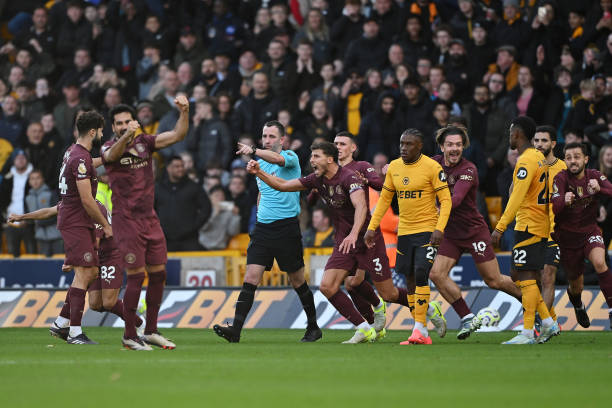Heartbreak struck Wolves at the final whistle when Manchester City snatched victory in the dying moments at Molineux, denying the hosts a hard-earned point. John Stones’ late goal shattered Gary O’Neil’s hopes as Manchester City sealed a victory after initially falling behind when Jorgen Strand Larsen scored for the Old Gold.

The turning point came when Josko Gvardiol and John Stones found the net for City, with Stones’ goal initially disallowed for offside. However, VAR overturned the on-field decision, allowing the late winner to stand, breaking Wolves’ hearts in the process.

Controversy surrounded the decisive goal as Bernardo Silva appeared to obstruct Wolves’ goalkeeper, Joseph Sa, in the build-up to Stones’ header from a corner. Despite the on-field ruling to chalk off the goal, VAR intervened following Stuart Attwell’s advice to Chris Kavanagh, leading to a VAR-assisted goal that ultimately decided the outcome.
The Premier League later explained the decision, stating that Bernardo Silva’s positioning did not affect the goalkeeper’s line of sight, prompting the referee to reverse his decision and award the goal.
Wolves’ resilient performance against Manchester City was marred by the VAR controversy, leaving fans and pundits questioning the system’s impact on the game. The ruling not only denied Wolves a well-deserved point but also deepened their struggles in the league standings, leaving them anchored at the bottom of the Premier League table.

The bitter taste of defeat and the VAR-induced outcome will undoubtedly fuel discussions and debates about the fairness and effectiveness of video assistant refereeing in football, especially in crucial match-deciding moments like this one at Molineux.
